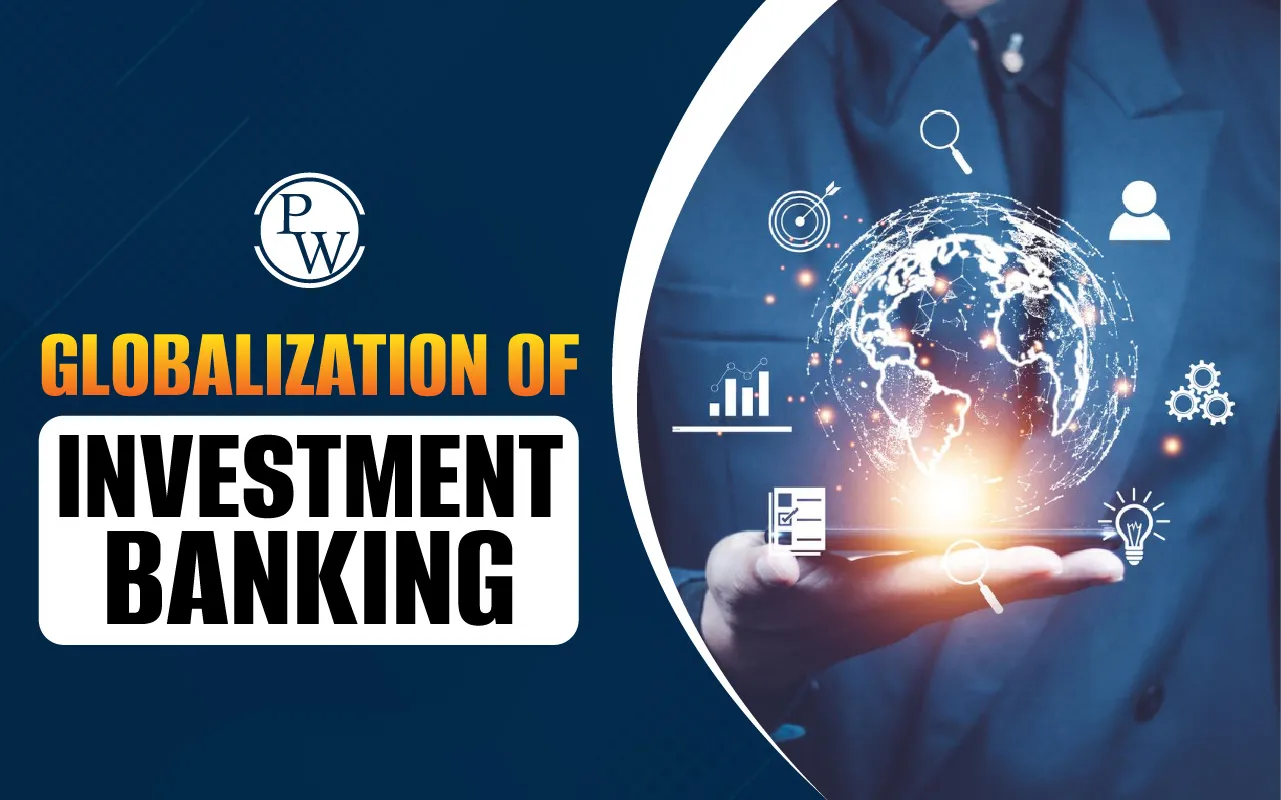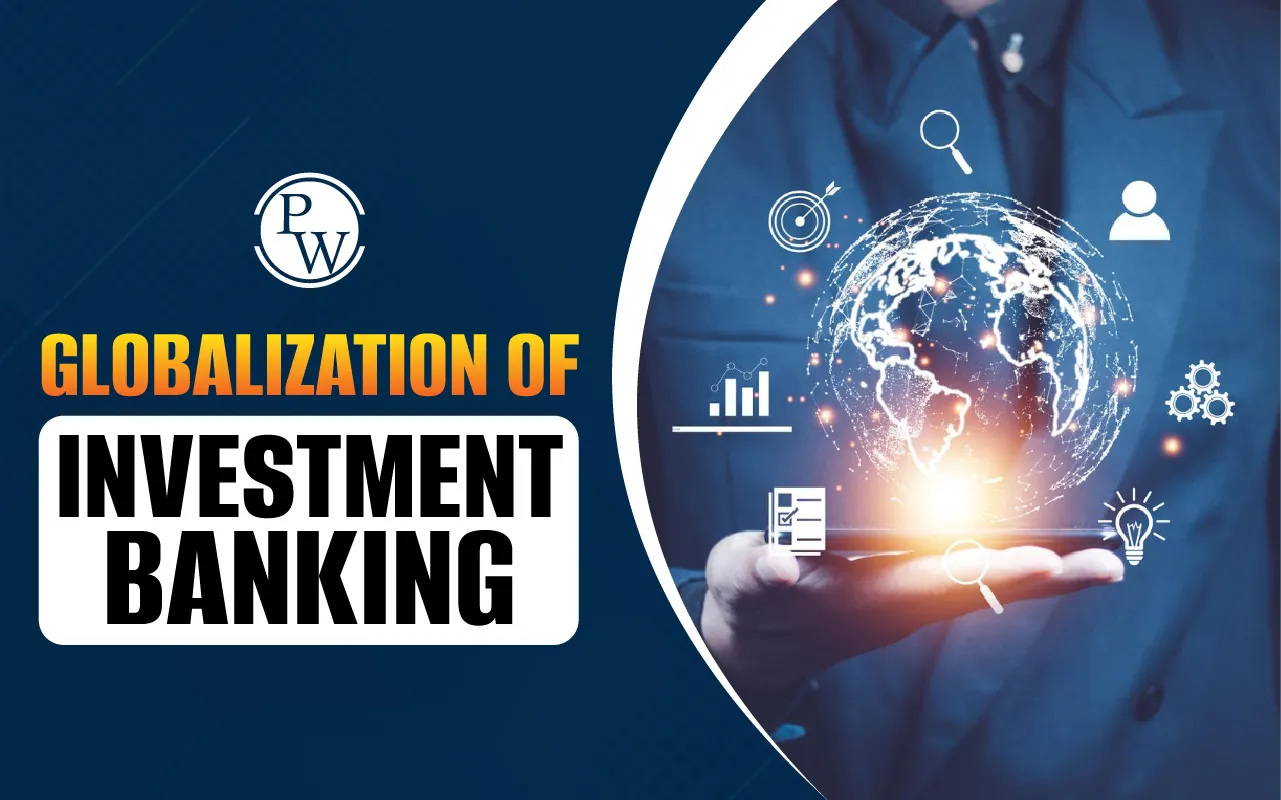

Globalization of Investment Banking has grown into one of the central forces in the world of finance. This process refers to how investment banks operate across borders and connect markets, capital, and firms internationally.
In the year 2025, the Globalization of Investment Banking has affected the way in which these banks work. It influences cross-border deals, capital raising, regulatory compliance, and technology use. Therefore, here we will examine what investment banking globalization means, its history, key functions, and how it is changing.
What is Investment Banking Globalization?
Globalization of Investment Banking refers to the process by which investment banks expand their services across many countries. It involves cross-border capital flows, international mergers, foreign issuance of securities, global trading, and regulation that spans regions.
Globalization of investment banking is largely influenced by liberalization of financial markets, improvements in technology, growth of global trade, and regulatory reforms. Investment banks now help clients in foreign issuance of bonds or equities, provide advice for cross-border, etc. Overall, Globalization means that an investment bank based in one country may underwrite an IPO in another, or help a firm list its shares abroad.
History of Global Investment Banking
When it comes to the history of global investment banking, it has been divided into several stages. Here we have provided the gist of the history of the Global Investment Banking:
Early stage (pre-20th century to mid-1900s): During the early stages, investment banks mostly worked within national borders. Global deals were rare, limited by travel, communication, and had many legal barriers.
Post-World War II to late 20th century: It was only after World War II and only after late 20th century that many countries removed capital controls. Investment banks started underwriting foreign issuances and facilitating international trade finance.
1980s-2000s: Deregulation in the United States, Europe, and many emerging economies enabled firms to expand overseas. The rise of international banking houses. Milestones include the removal of Glass-Steagall restrictions in the US (1999) which had separated commercial and investment banking.
Financial crises and regulation (2008 onward): After the 2008 financial crisis, rules for banks became much stricter. Basel III standards, stress tests, and new global regulations meant investment banks had to focus more on compliance and managing risks across different countries.
Recent years (2020-2025): In recent years (2020–2025), technology has made a big difference. Digital platforms and better data systems have allowed banks to work globally at lower costs. At the same time, emerging markets are playing a bigger role. They are facing issues like international rules, sustainability (ESG), and geopolitical changes that are shaping how globalization of investment banking evolves
Cross-Border Mergers and Acquisitions
Cross-Border Mergers and Acquisitions is one of the major functions when it comes to Globalization of Investment Banks. In such deals, in which one firm in one country acquires or merges with a firm in another country. Investment banks help with valuation, negotiation, due diligence, regulatory clearance, and financing.
| Cross-Border Mergers and Acquisitions | ||
| Function | Details | Importance / Challenges |
| Valuation & Financial Models | Estimate future cash flows, build financial models across jurisdictions. | Helps determine fair value of target; accuracy may be affected by market volatility. |
| Synergy Assessment | Identify cost savings, revenue growth, technology and resource benefits from the merger. | Supports strategic decision-making; integration risks may reduce expected gains. |
| Legal, Tax & Regulatory Management | Handle foreign ownership limits, antitrust rules, tax compliance, labor and corporate laws. | Ensures compliance and smooth deal approval; complexity increases with multiple jurisdictions. |
| Deal Structuring | Design payment methods such as share swaps, cash settlements, or debt financing. | Aligns financial interests of parties; exposed to currency fluctuations and financing risks. |
| Advisory & Negotiation | Support in negotiation of terms, timelines, and governance frameworks. | Secures favorable outcomes; cultural and legal differences may complicate talks. |
| Risk Mitigation | Evaluate political, economic, and currency risks in cross-border contexts. | Protects clients from unforeseen losses; uncertainty remains high in unstable regions. |
Global Capital Markets and Investment Banks
Global capital markets are platforms where firms and governments raise capital by issuing securities (stocks or bonds) across borders. Investment banking globalization plays a major role here:
-
Underwriting new issues: Investment banks underwrite initial public offerings (IPOs), follow-on public offerings (FPOs), or bond issuances in foreign markets. They help clients to raise funds in multiple markets. For example, a company in Asia might list in the US or Europe.
-
Private placements: Sometimes firms prefer to raise capital via private placement in foreign institutional markets. Investment banks help them access institutional investors abroad.
-
Securities trading and sales internationally: Investment banks facilitate sales of securities in secondary markets globally. They provide market making, sales, trading, and distribution.
-
Research services: They supply analysis of markets, companies, and economic trends that span countries. This supports investors in deciding where to allocate capital globally.
International Regulations and Compliance
With globalization, investment banks must follow rules in multiple jurisdictions. Key functions here include:
-
Regulatory compliance: Investment banks must follow financial rules, AML norms, and KYC standards. They also comply with foreign investment limits, data privacy, and tax laws.
-
Cross-border oversight: Global bodies like Basel Committee and IOSCO set risk and capital rules. Regional regulators such as ESMA and SEBI add local requirements.
-
Legal risk management: Banks face different laws on corporate, contract, and insolvency matters. They must adapt to each country’s legal framework.
-
Reporting and disclosure: Financial reports must align with IFRS standards. Local accounting and disclosure rules also need to be met.
Impact of Technology on Global Investment Banking
Technology is transforming how investment banks work globally. Some of the major functions and effects include:
| Impact of Technology on Global Investment Banking | ||
| Technology | Description | Impact / Benefit |
| Digital Communication & Data | Real-time communication through video and secure platforms; live data feeds. | Enables instant price discovery and faster decision-making across markets. |
| Automation & AI | Automates risk modelling, trade execution, portfolio optimisation, and due diligence. | Improves efficiency and analyses large datasets for global market trends. |
| Blockchain & Fintech | Used for settlement, clearing, and tokenization of assets. | Reduces transaction time and lowers operational costs. |
| Cybersecurity | Strong security systems for global operations and data. | Protects against cyber threats and ensures transaction safety. |
| Remote Operations | Teams work across multiple countries using digital platforms. | Supports seamless coordination of advisory, research, and underwriting. |
If you wish to deepen your understanding of investment banking globalization and gain practical skills to work across global capital markets, consider enrolling in the Investment Banking Program in association with PwC India. It provides structured learning, industry alignment, and exposure to real-life cases. Find more details here: Join the Investment Banking Program
Globalization of Investment Banking FAQs
What is globalization of investment banking?
Why is globalization important in investment banking?
How do investment banks support cross-border mergers?
What role does technology play in global investment banking?













